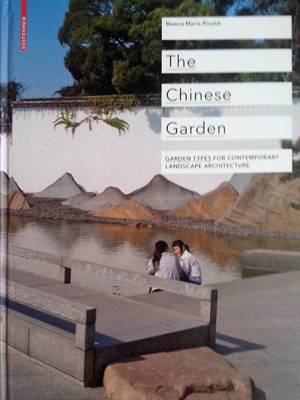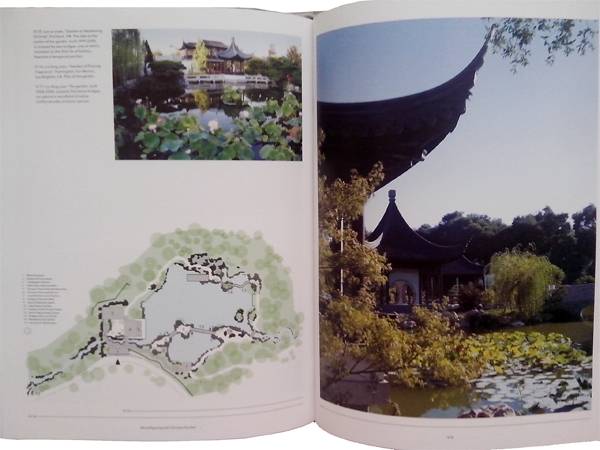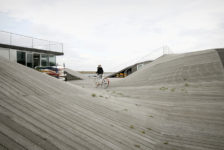The Chinese Garden by Bianca Maria Rinaldi The modern landscaped garden certainly has some well established roots. The English, Japanese, French, and, not lastly, Chinese were pioneers in organizing all the elements of a garden to create an inspiring and unique space most often regarded as a piece of art. As we wish to explore every aspect of modern landscape architecture and its every implementation, we search the past to inspire the future. To do that, we have chosen Bianca Maria Rinaldi’s book “The Chinese Garden” as a great reference for gardeners and landscape architects alike. Overview
My first impression of the book was quite positive. Even for an expert in the domain, “The Chinese Garden” seems like a complete guide to all the aspects concerning the design, history, and influences of the traditional Chinese garden. With a foreword by Franco Panzini, who punctuates the evolution and importance of the Chinese garden in a clear timeline, this book has no trouble persuading the reader to explore its pages. The general aim of this book is to encompass the complete collection of Chinese gardens, old and new, for the purpose of posing various perspectives on garden design and contemporary landscapes. Besides tapping into the full evolution and principles on which the typical Chinese garden is based, Rinaldi manages to present the true science of the compositional works, the traditions behind the design decisions, and the influence these works have had on contemporary interpretations from around the world. Structure and content Rinaldi starts the book with an overview of the Chinese garden’s principles and ethics, after which she makes a presentation of the evolution of garden design and all its particularities, based on the Chinese dynasties that shaped them. The bulk of the book is very much focused on the effect and composition of the gardens, as well as on the pure elements that make up these types of manipulation of nature. A very interesting aspect is the detailing of modern and foreign interpretations of the traditional Chinese garden. This gives the book its whole and makes it that much more attractive and informative for potential readers. The expansiveness of the content even contains short portraits of the most well-known Chinese parks and gardens, from the imperial era to the contemporary, from the heart of China to New York City. This is a hefty hardcover book with thick pages, perfect to withstand wear and tear, and, of course, intensive reading. The book’s composition itself is marvelous. From stunning photos and detailed sketches and plans to well-thought-out text, the harmony of its structure entices the reader. It could be said that the very book is based on the construction principles of a traditional garden. Get it Here! So why choose this book? In LAN’s opinion, this may be the complete “dictionary” on the topic of Chinese gardens and is well worth a read by professionals and enthusiasts alike. “The Chinese Garden” encompasses wit, information, and visual representations that will wow anyone, not to mention give them a full schooling on the topic. In the words of Franco Panzini: “Studying the compositional methods of Chinese gardens is not only a deeper way to understand one of the great adventures in humanity’s relation with nature, but also an important contribution to the evolution of contemporary landscape architecture.” About the author Bianca Maria Rinaldi studied architecture at the University of Camerino, Italy, and landscape architecture at the Leibniz University in Hanover, Germany. She was assistant professor at the Institute for Landscape Architecture of the University of Natural Resources and Applied Life Sciences in Vienna and at the Institute for Architecture and Landscape of Graz University of Technology, Austria. She is assistant professor for landscape architecture at the School of Architecture and Design of the University of Camerino, Italy. Get it Here! Publisher: Birkhauser; 1 edition (March 28, 2011) Type: Hardcover No. of pages: 176 pages Review written by Oana Anghelache Featured image; credit: Shutterstock.com Published in BlogLogin
Lost Password
Register
If this is your first time on the new site, please click "Forgot your password?". Follow the steps to reset your password. It may be the same as your old one.








![Workaround [Video]](https://land8.com/wp-content/uploads/2018/03/richard-jones-land8x8-224x150.png)


